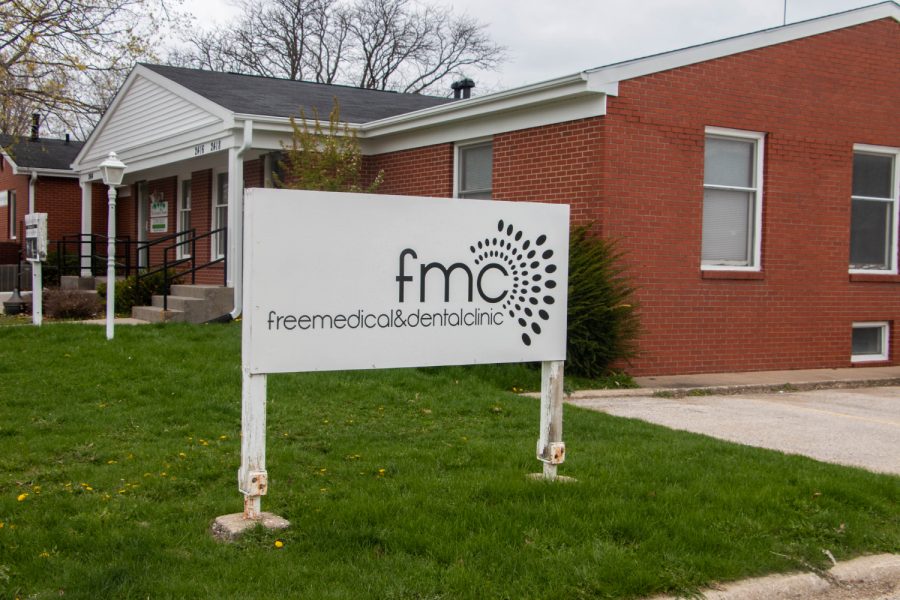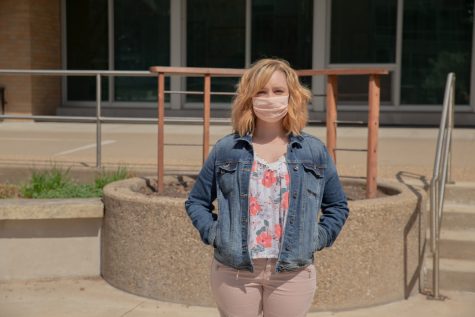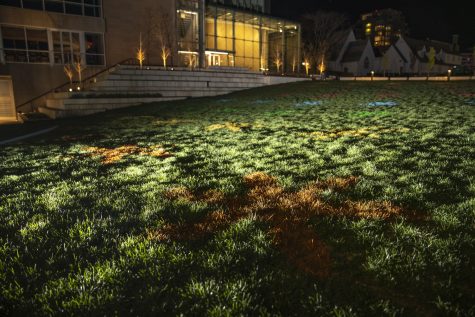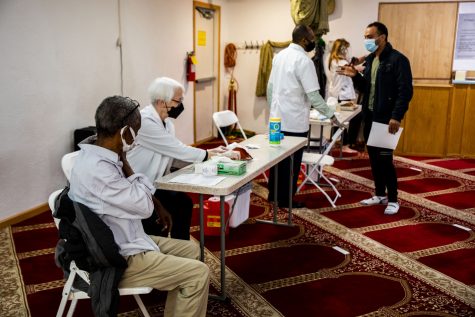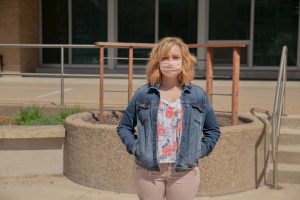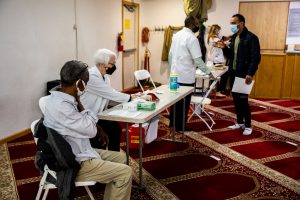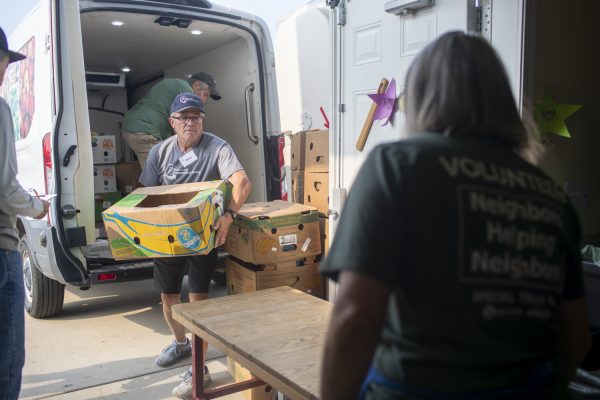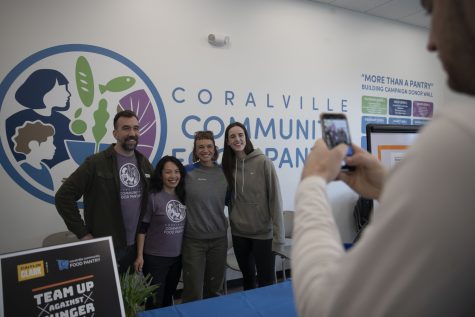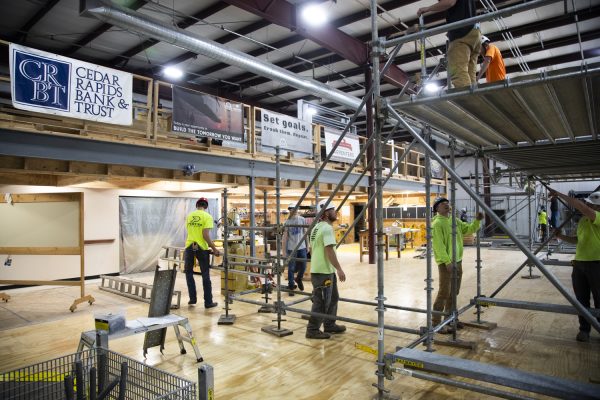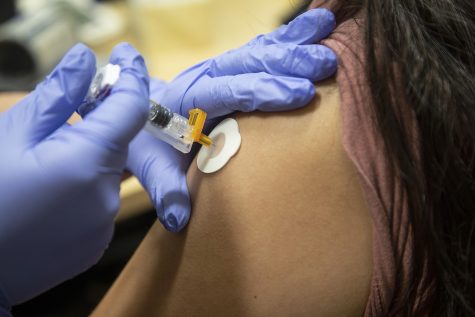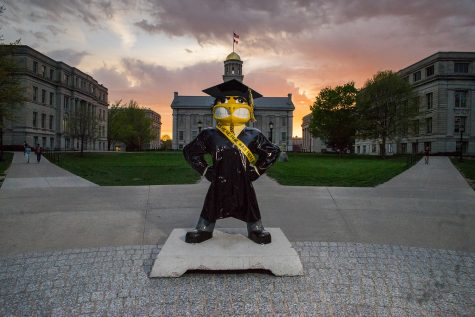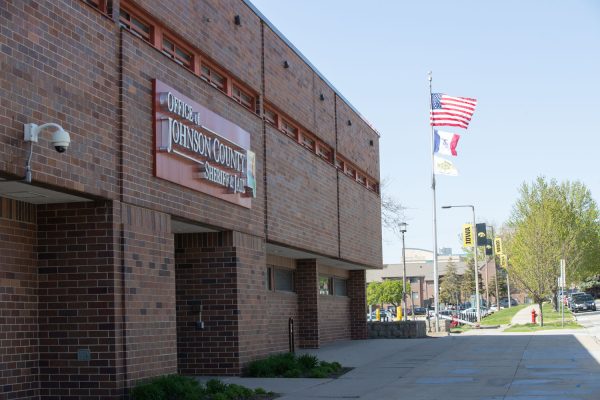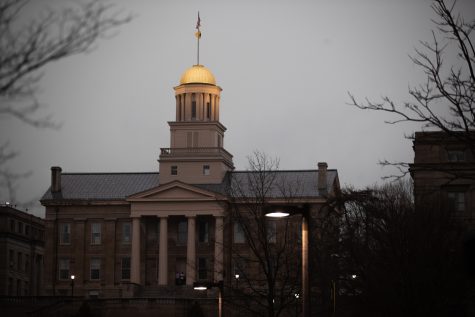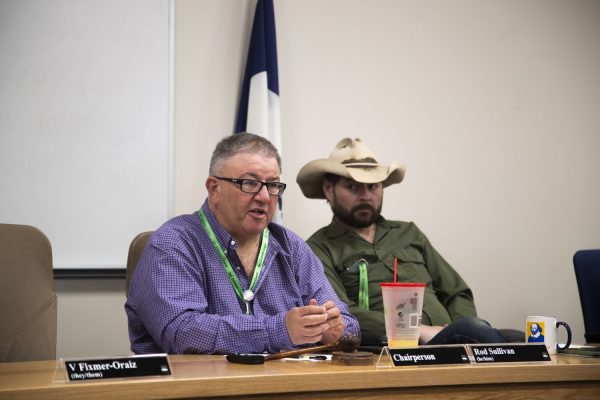Iowa City Free Medical and Dental Clinic celebrates 50 years of operations
The Iowa City Free Medical and Dental Clinic is now the second longest-running free medical clinic in the U.S., after celebrating its 50th anniversary.
The Iowa City Free Clinic is seen Friday, April 16, 2021. The clinic is celebrating its 50th anniversary.
April 18, 2021
The Iowa City Free Medical and Dental Clinic will celebrate 50 years of operation this spring, making it the second-longest running free clinic in the U.S.
Founded on the belief that health care is a basic human necessity, clinic officials said the nonprofit has worked hard for the past five decades to provide quality medical care to the uninsured and underinsured.
“Fifty years is something I’m so proud of,” executive director of the clinic Barbara Vinograde said. “But it’s something that our whole community needs to be thanked for and to celebrate because we are truly a community clinic, and we wouldn’t be here without all our supporters.”
Although the clinic predominately served as a source for acute and preventative care in its initial days, Vinograde said her staff has added chronic and specialty care clinics over the years to adapt to patients’ needs.
Cecilia Norris, the clinic’s medical director, said she’s seen an increased need for chronic care in her 15 years with the organization.
“We serve a large number of immigrant and refugee patients who haven’t been able to see physicians for many years. We see patients who don’t have insurance. Patients who haven’t seen a physician because of the costs,” Norris said. “We are certainly seeing more complex patients who are struggling more to do what they need to do to treat their medical conditions.”
In an email to The Daily Iowan, Johnson County Public Health Disease Prevention Specialist Jennifer Miller wrote that the Free Medical Clinic has been a lifesaver for many people in the community.
RELATED: Child Life creates a home within the Stead Family Children’s Hospital
“There are many people who do not qualify for low-cost or no-cost medical insurance and are therefore unable to seek care for preventative services, chronic disease management, and acute care when ill or injured,” Miller wrote. “Without this clinic, those people’s health would suffer and that affects the community as a whole. FMC (Free Medical Clinic) allows Public Health services to reach some of the more vulnerable portions of the population.”
Since opening its doors in 1971, the clinic’s free medical services have become an essential source of health care for many low-income patients in Iowa City and the surrounding area, Vinograde said.
Data visualization by Eleanor Hildebrandt/The Daily Iowan
In 2018, 5.1 percent of Johnson County residents were uninsured — a slightly higher percentage than the overall rate of uninsured Iowans across the state, which is 4.7 percent.
According to data provided by the nonprofit clinic, 97 percent of patients who received care at the clinic last year were uninsured. Of the 1,589 patients who visited the clinic, 74 percent fell below the federal poverty level.
For low-income patients without health insurance, Norris said health care is prohibitively expensive. This makes organizations like free medical clinics important resources when it comes to providing preventative care to patients who otherwise would not be able to afford it.
“Many of our patients have told us over the years that if the Free Clinic wasn’t here, they would go without needed preventative care, or they’d delay care for as long as possible and then go to the emergency room,” Vinograde said. “Free clinics contribute to the overall health of any community. When people in the community are healthy, the community is a better place to live.”
Both Vinograde and Norris emphasized that they are proud of the work the free clinic has done in the past five decades, but that they hope their services won’t be needed in the future.
“My hope within the next 50 years is that the free clinic will not be necessary because we will have a public option,” Vinograde said. “Free clinics are absolutely essential in access to care today and we will keep our doors open for as long as we are needed. But my hope is that our country will be brave enough to try something different.”



